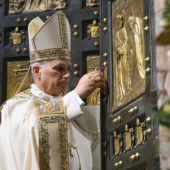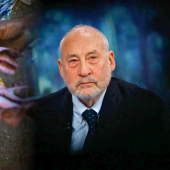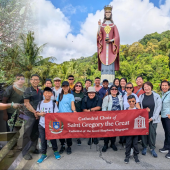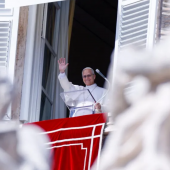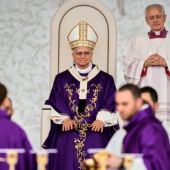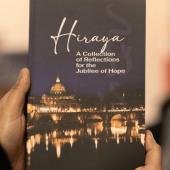Digital Missionaries and Catholic Influencers Ignite a Global Community of Faith in Rome
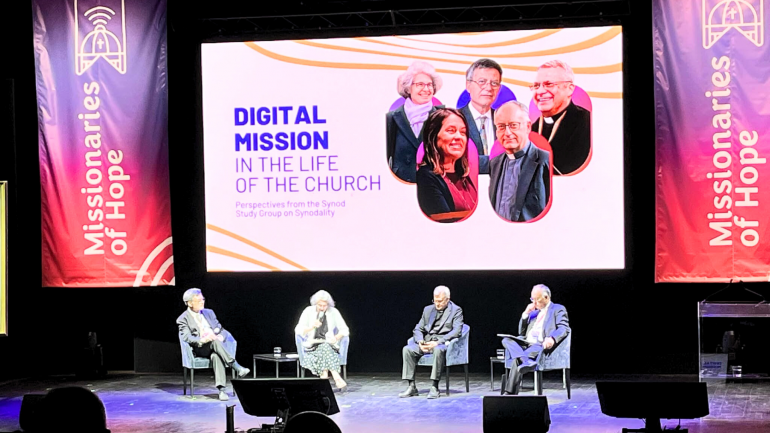
The message, “More than Wi-Fi or hashtags, today His Word connects us,” set the tone for the opening day of the Jubilee for Digital Missionaries and Catholic Influencers, as thousands of online evangelizers from around the world gathered in Rome to pray, reflect, and encounter one another as one Church digitally connected, yet spiritually united.
Held at the Auditorium Conciliazione on July 28, the first day of the two-day gathering unfolded not as a conventional conference, but as a living experience of communion rooted in listening, mission, and shared faith. For many participants, it was their first time meeting face-to-face after years of virtual collaboration, each bringing stories of hope, challenge, and creativity from the digital frontlines of evangelization.
Organized by the Dicastery for Evangelization in partnership with the Dicastery for Communication, the Jubilee opened with messages of encouragement from Cardinal Pietro Parolin, Archbishop Rino Fisichella, and Dr. Paolo Ruffini. Addressing the assembly, Ruffini, Prefect of the Dicastery for Communication, underscored the Church’s growing awareness that the digital world is not just a tool, but a space for mission.
“What binds us is not the algorithm but the living God who sends us forth, not to go viral, but to witness,” Ruffini said.
He invited participants to look beyond metrics and follower counts, and instead build a network rooted in prayer, encounter, and authentic humanity.
The first keynote address, “Connected by the Word,” was delivered by Jesuit Fr. David McCallum, who emphasized the foundational role of Scripture and silence in an increasingly noisy digital world.
“Before we speak online, we must listen, to God, to the Church, and to one another,” he said, urging digital missionaries to root their message in contemplation.
Fr. Antonio Spadaro, SJ, followed with a compelling reflection on evangelization in the age of algorithms. He raised critical questions about the incarnational nature of mission in a time of disembodied communication and artificial intelligence: Can we still witness Christ authentically in a world fragmented by digital overload?
Small-group sessions allowed participants to share testimonies from their own contexts, some recounting burnout and online hostility, others speaking joyfully about the emergence of vibrant online communities of prayer, catechesis, and support. Voices came from across continents: a podcast host in Nigeria, a TikToker in Brazil, a YouTube catechist in the Philippines, and a media leader from South Korea. Different languages and platforms, but one shared call: to proclaim Christ.
The afternoon featured a panel on the witness of the saints, with friends and family members of contemporary saints reflecting on how lives rooted in holiness continue to inspire even through a smartphone screen.
“Every saint was an influencer of God,” one speaker remarked, affirming the day’s core message that holiness, not virality, is the true goal of Christian presence online.
A presentation by the Synod Study Group invited participants to situate their digital mission within the broader synodal journey of the Church, where listening, discernment, and dialogue are central.
As the sun set over Rome, participants made a pilgrimage to St. Peter’s Basilica for a time of deep spiritual renewal. In a solemn Eucharistic Adoration and Penitential Liturgy, presided over by Cardinals Óscar Rodríguez Maradiaga and José Cobo Cano, digital missionaries became true pilgrims, laying down the burdens of self-promotion and recommitting to a mission sustained by grace.
The first day of the Jubilee concluded not with applause or analytics, but with silence, prayer, and renewed purpose.
Stay with RVA News for Day Two highlights, including the pilgrimage to the Holy Door and the consecration of the digital mission to Mary, whom organizers called “God’s first influencer.”
Radio Veritas Asia (RVA), a media platform of the Catholic Church, aims to share Christ. RVA started in 1969 as a continental Catholic radio station to serve Asian countries in their respective local language, thus earning the tag “the Voice of Asian Christianity.” Responding to the emerging context, RVA embraced media platforms to connect with the global Asian audience via its 21 language websites and various social media platforms.









